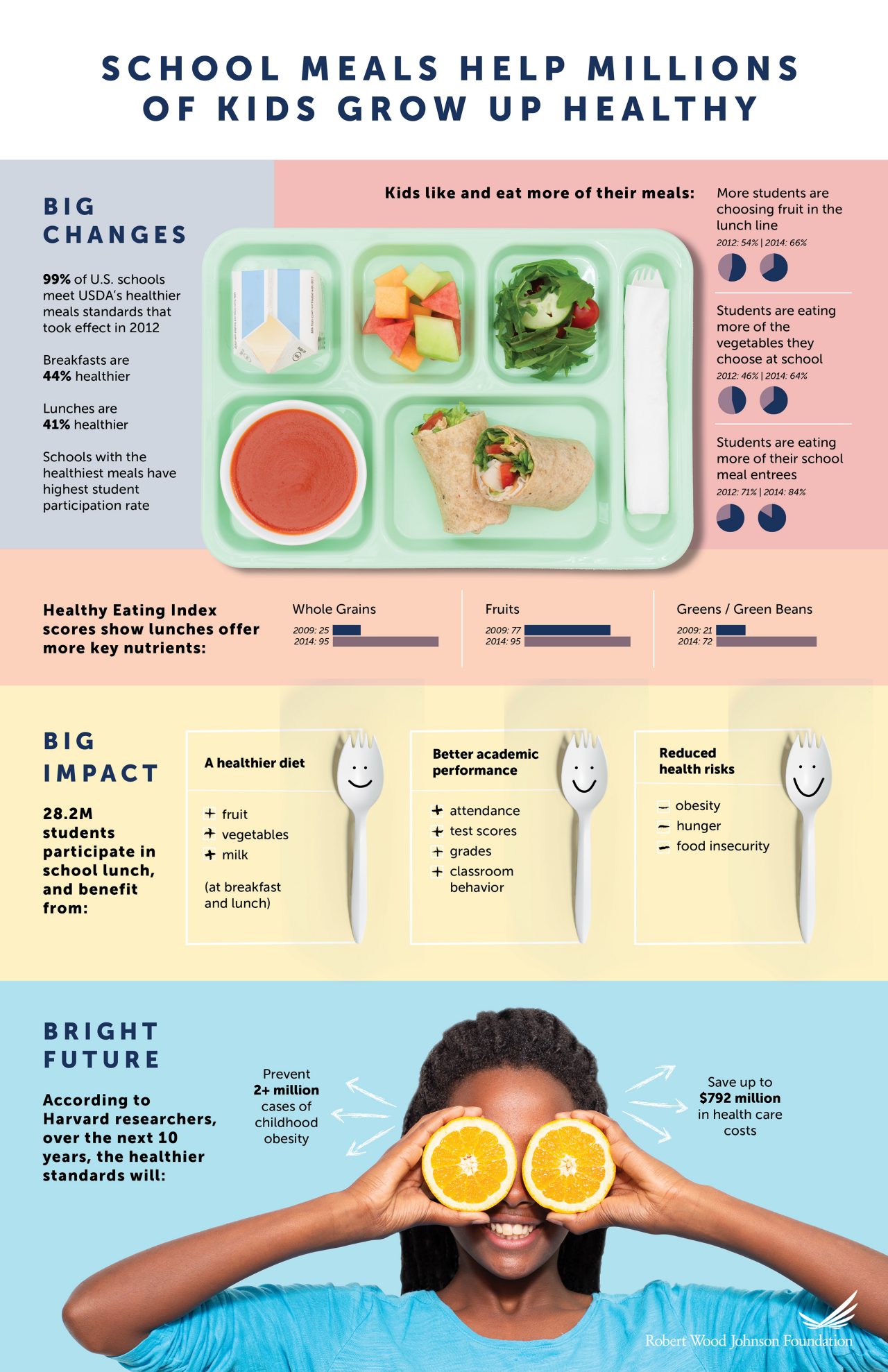RWJF Statement on Proposed Changes to USDA's School Meal Nutrition Standards
The following statement from president and CEO Richard Besser, MD, of the Robert Wood Johnson Foundation, is in response to the U.S. Department of Agriculture’s (USDA) proposed rule on school meal nutrition standards.
During this health crisis, we are seeing—perhaps more than ever—the importance of healthy school meals. At least 121,000 schools serving more than 54 million children across the United States have closed due to the coronavirus outbreak. But states and school districts are acting heroically to ensure that children still receive healthy, nutritious meals every day.
We applaud the U.S. Department of Agriculture for giving states and schools the flexibility and resources to do so. Students depend on school meals to keep them healthy and to give them a better chance at succeeding in the classroom. This is especially true for the more than 20 million children who receive free or reduced-price meals. For them, school meals may be their primary or even sole source of good nutrition. Maintaining access to them is more than simply a convenience; it is a lifeline.
Yet even while recognizing the value of school meals during this extraordinarily difficult time, USDA is still moving forward with a proposal, first issued in January, to make school meals permanently less healthy. Under USDA’s proposal, schools would be allowed to serve less fruit, fewer whole grains, fewer varieties of vegetables, and more starchy vegetables. Foods like pizza and cheeseburgers could be served more often without being required to meet nutrition standards.
That just doesn’t make sense.
A new analysis just released from Healthy Eating Research examining the projected impact of these changes shows that this proposal could have a detrimental impact on academic performance and kids’ health. The students who would be most impacted by these changes are those from low-income families attending schools in African-American and rural neighborhoods. These are among the students already at highest risk for obesity and related health conditions.
School meals nutrition standards were updated nearly a decade ago, and the results have been an unqualified success. USDA’s own research shows that the updated standards have significantly improved the nutrition content of school meals, with student participation in meal programs highest in schools that serve the healthiest meals.
USDA is helping millions of students get through a really hard time. We encourage the department to apply that same mindset to students’ health and education over the long-term. Weakening school nutrition standards does not solve problems; it creates them. We sincerely hope USDA reconsiders this misguided rule.
About the Robert Wood Johnson Foundation
For more than 45 years the Robert Wood Johnson Foundation has worked to improve health and health care. We are working alongside others to build a national Culture of Health that provides everyone in America a fair and just opportunity for health and well-being. For more information, visit www.rwjf.org. Follow the Foundation on Twitter at www.rwjf.org/twitter or on Facebook at www.rwjf.org/facebook.

October 2019: School Meals Help Millions of Kids Grow Up Healthy infographic

May 2017: RWJF Statement on School Meal Standards

January 2018: RWJF Comments on USDA's Proposed Changes to the National School Lunch and School Break...
